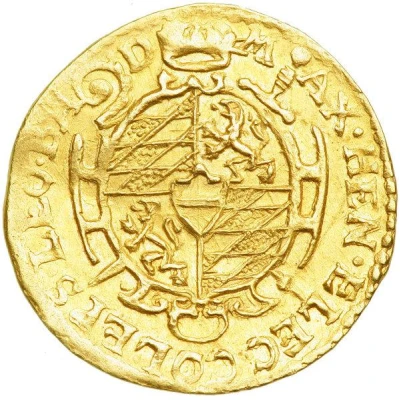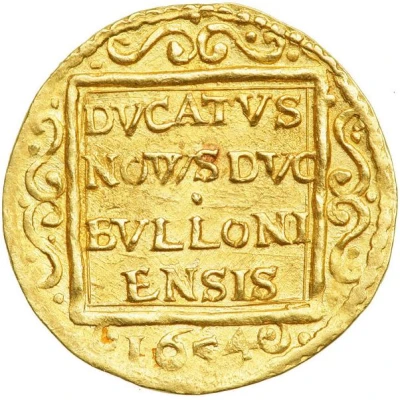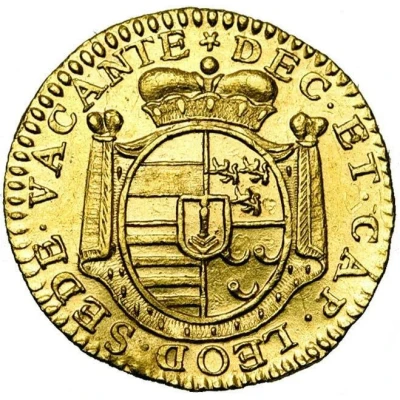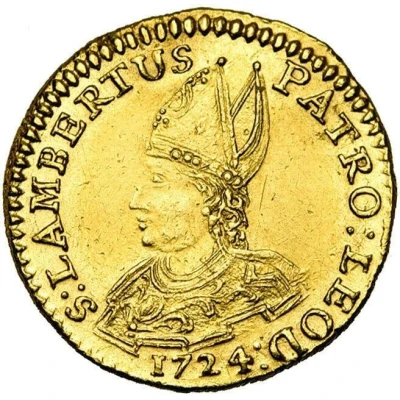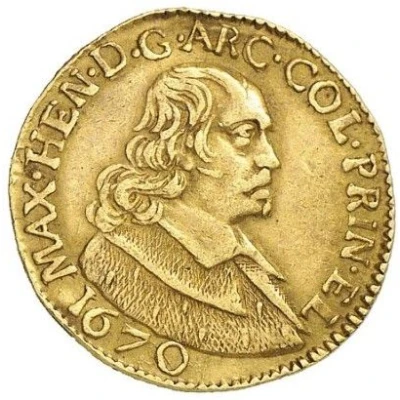
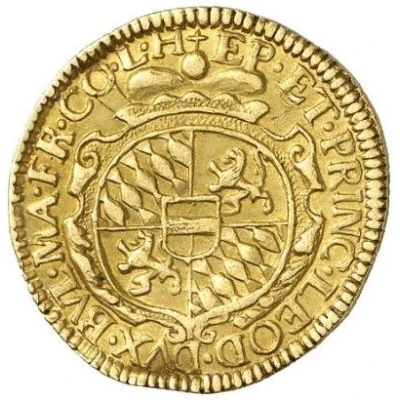

© Fritz Rudolf Künker GmbH & Co. KG, Osnabrück and Lübke & Wiedemann KG, Leonberg
Ducat - Maximilian Henry of Bavaria
| Gold (.986) | 3.5 g | - |
| Issuer | Prince-bishopric of Liege (Belgian States) |
|---|---|
| Prince-bishop | Maximilian Henry of Bavaria (1650-1688) |
| Type | Standard circulation coin |
| Years | 1663-1674 (1662-1674) |
| Value | 1 Ducat (8) |
| Currency | Florin Brabant-Liege (1650-1795) |
| Composition | Gold (.986) |
| Weight | 3.5 g |
| Shape | Round |
| Demonetized | Yes |
| Updated | 2024-10-04 |
| Numista | N#339848 |
|---|---|
| Rarity index | 100% |
Reverse
Capped five-fold arms of Bavaria-Palatinate-Bouillon in cartouche.
Script: Latin
Lettering: EP • ET • PRINC • LEOD • DVX • BVL • MA • FR • CO • L • H
Unabridged legend: ...Episcopus et princeps Leodiensis dux Bulionensis ...
Translation: ... Prince-bishop of Liege, Duke of Bouillon ...
Comment
Variants in legends, size of numerals in date, are known.Interesting fact
The Ducat - Maximilian Henry of Bavaria 1663-1674 (1662-1674) from Prince-bishopric of Liege (Belgian States) is an interesting coin because it was minted during a time of great political and religious upheaval in Europe. The coin was issued by Maximilian Henry of Bavaria, who was the Prince-Bishop of Liege from 1662 until his death in 1674. During his reign, the Prince-Bishopric of Liege was a small but powerful state located in what is now eastern Belgium, and it was a key player in the political and religious conflicts of the time. The coin itself is made of gold (.986) and weighs 3.5 grams, making it a valuable and highly sought-after collector's item. Its design features an image of Maximilian Henry on one side and the coat of arms of the Prince-Bishopric of Liege on the other. The coin's mintage was likely limited, given the small size of the Prince-Bishopric and the fact that it was only issued during a 12-year period. Overall, the Ducat - Maximilian Henry of Bavaria 1663-1674 (1662-1674) from Prince-bishopric of Liege (Belgian States) is an interesting and valuable coin that offers a glimpse into the complex political and religious landscape of 17th-century Europe.
